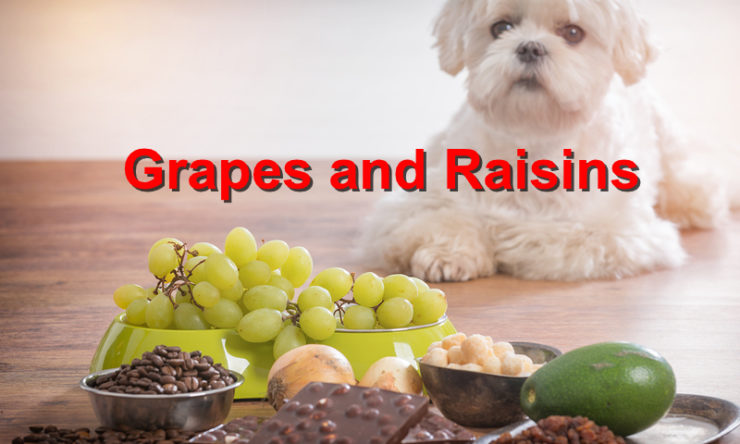Grapes and Raisins toxicity in dogs and avoiding it
It is evident that chocolate is toxic to dogs. Unfortunately, we don’t suspect grapes and raisin despite the possibility of a fatal outcome to your pet. Read on and learn to protect your dog.
What are the signs of Grape and Raisin Toxicity?
It wasn’t until about 25 years ago that research documented statistics on the toxicity of grapes and raisins. Nonetheless, there is still little evidence as to what causes the toxicity to dogs. Typically after consumption, the dog shows symptoms of vomiting, diarrhea, dehydration, appetite loss, lethargy, anuria (acute renal failure) and oliguria (blocked urine). In prolonged cases of poisoning, the dog would portray seizures, tremors, oral ulcers and or go into a coma.
What’s True?
Although the root toxin agent in the grapes and raisins is unknown, there is growing speculation on the flesh of the grapefruit causing the serious toxic reaction. Additionally, there are other possible reasons for the toxicosis suggested including, fungicides/herbicides, heavy metal contamination, mycotoxins or high levels of vitamin D. Still the primary affected organ remains the kidney, with anecdotal reports linking the acute renal failure in the canines to the ingestion of grapes or raisins. The findings have also included evidence of renal tubular necrosis, renal tubular epithelial regeneration and metastatic mineralization of tissues.
How Much is Dangerous?
Nobody knows for sure the appropriate level of exposing the dog to the treats although records do indicate amounts of 0.7 Oz/kg (Grapes) and 0.1 Oz/kg (Raisins) as possible prognosis levels. However, it remains prudent that no dog owner should test out the possibility of grape poisoning on their dog.
What to do in case of Poisoning
treatment remains the key to successfully avoiding a fatal incident since there is no apparent antidote existing. If the ingestion period is within the last two hours, the best treatment is to induce vomiting for the fruit toxins to leave before digestion and absorption occurs. If the dog is already showing dire symptoms such as unconsciousness, breathlessness, distress or panic, seeking intensive treatment is the best approach. With a vet, the dog gets the best chance of survival since they can administer gastric decontamination protocols through activated charcoal and gastric lavage.
Possible Prevention Measures
Probably the best recommendation is to keep grapes and raisins out of the dog’s reach. Additionally, a reasonable precaution is not leaving young children alone with the dog while having toxic ingredients.
SOURCES: Wikipedia, Ivis, Med Vet For Pets, Research Gate, VSPN, Wiley
COPYRIGHT: Local Value





